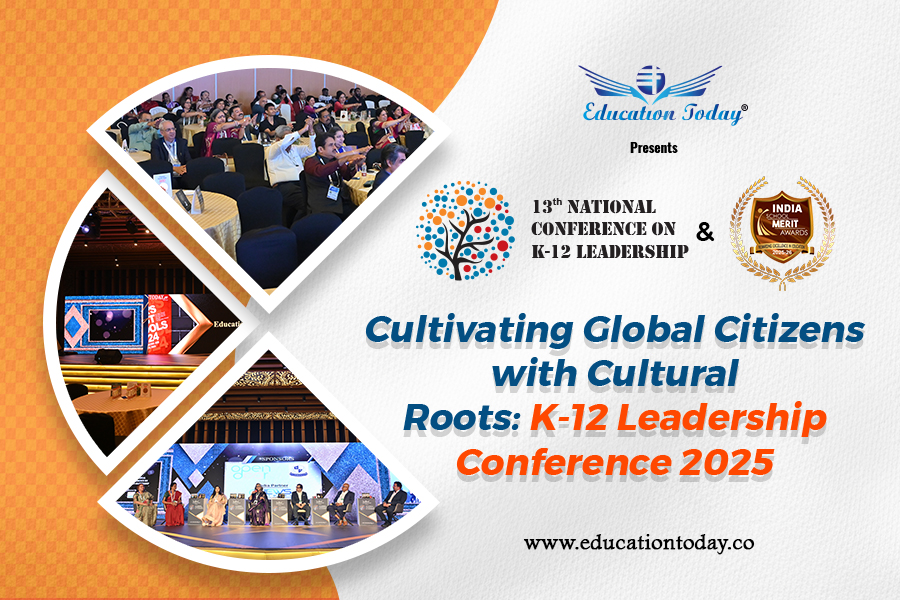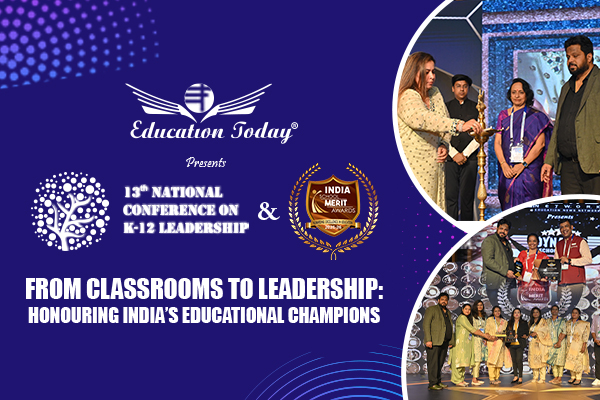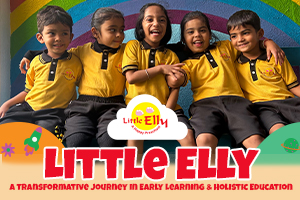Education Summit Gurugram 2024 : Redefining Learning Through Experience
Experiential learning is more than just an educational philosophy—it's a transformative journey that moves learners beyond textbooks into the dynamic world of real-world experiences. Instead of merely listening to lectures or reading, students actively engage, make mistakes, reflect, and master new skills.
This approach was highlighted at the Education Summit at Gurugram 2024 on August 30, 2024, in Crown Plaza. A key session, "Global Best Practices in Experiential Education," explored how hands-on learning and student-centered methodologies shape the future of education worldwide, particularly in India. The event also honored excellence in education with the Education Excellence Awards India and K-12 School Awards India, celebrating schools setting new educational quality standards. The summit showcased how experiential learning is a vital force in the future of education, fostering active, impactful learning.
Ms. Alpana Baveja highlighted the difference between activity-based learning and experiential learning. While both are student-centered, the key distinction is the level of involvement and problem-solving. She shared an example of a project where students designed a Polly house for the school garden. By encouraging students to come up with the idea themselves rather than assigning them a pre-designed project, the school created an immersive learning experience that helped students develop critical thinking, teamwork, and creativity—essential skills for the future.
Ms. Madhu Chauhan reflected on the importance of fostering curiosity and critical thinking, drawing from her experiences as a student. She shared how her school, though only six years old, has embraced project-based learning in Indian schools. One notable example was a toy-making workshop where students learned about shapes and sizes and explored geometry and communication skills in a practical, enjoyable way.
As Indian schools continue to adapt to global best practices in experiential education, they will play a pivotal role in nurturing academically proficient students equipped with the critical thinking, creativity, and leadership skills needed to thrive in the real world.
The insights shared at the summit align with the goals of NEP 2020, and the emphasis on student-centered learning methods provides a roadmap for creating a more dynamic, engaging, and practical educational experience for the next generation.
Stay tuned for more updates on how experiential learning in Indian schools is evolving. Watch the full video of the panel discussion for further insights into experiential learning and higher education.
This approach was highlighted at the Education Summit at Gurugram 2024 on August 30, 2024, in Crown Plaza. A key session, "Global Best Practices in Experiential Education," explored how hands-on learning and student-centered methodologies shape the future of education worldwide, particularly in India. The event also honored excellence in education with the Education Excellence Awards India and K-12 School Awards India, celebrating schools setting new educational quality standards. The summit showcased how experiential learning is a vital force in the future of education, fostering active, impactful learning.
A Deep Dive into Experiential Learning
The discussion, chaired by Dr. Sangeeta Bhatia, explored how experiential learning can be a cornerstone of India's educational system, particularly in light of the NEP 2020, which emphasizes integrating hands-on learning and collaborative learning environments. The panel consisted of distinguished education leaders, each offering valuable insights on project-based learning and experiential learning in higher education and the role of student-centered learning methods in shaping the future of education.The Panelists:
- Ms. Anitha Malhotra, Principal, Lotus Valley International School, Gurugram
- Dr. DC Sharma, Headmaster, Punjab Public School, Nabha
- Ms. Madhu Chauhan, Principal, Tagore Public School, Gurugram
- Ms. Jyotsana Minocha, Principal, Queen Global International School, Delhi
- Ms. Alpana Baveja, Director Principal, GD Goenka Signature School
- Ms. Priyanka Bhatkoti, Principal, Gyanshree School, Noida
Key Insights from the Panelists
Ms. Anitha Malhotra started the discussion by quoting Benjamin Franklin: “Tell me and I forget, teach me and I may remember, involve me and I learn.” She emphasized that experiential learning is about engaging students in learning rather than simply delivering information. She pointed out that today’s students, who are digital natives, thrive in environments that offer real-time experiences as opposed to traditional classroom settings. By organizing events like birthday parties as classroom activities, Ms. Malhotra demonstrated how hands-on learning can help students internalize concepts while fostering skills like collaboration and leadership.Ms. Alpana Baveja highlighted the difference between activity-based learning and experiential learning. While both are student-centered, the key distinction is the level of involvement and problem-solving. She shared an example of a project where students designed a Polly house for the school garden. By encouraging students to come up with the idea themselves rather than assigning them a pre-designed project, the school created an immersive learning experience that helped students develop critical thinking, teamwork, and creativity—essential skills for the future.
Ms. Madhu Chauhan reflected on the importance of fostering curiosity and critical thinking, drawing from her experiences as a student. She shared how her school, though only six years old, has embraced project-based learning in Indian schools. One notable example was a toy-making workshop where students learned about shapes and sizes and explored geometry and communication skills in a practical, enjoyable way.
The Role of Experiential Learning in Higher Education
Dr. DC Sharma provided a broader perspective on balancing academic curricula and experiential learning. He emphasized that the goal of education is not just to achieve high marks but to develop well-rounded individuals equipped with the skills to succeed in the real world. He discussed how integrating experiential learning with the academic syllabus helps nurture leadership, problem-solving, and practical life skills. This holistic approach aligns with the NEP 2020, which calls for a more integrated, application-based learning system.Creativity and Fun in Learning
Ms. Jyotsana Minocha introduced her innovative Music Factor approach to teaching, highlighting how creativity can be used to make learning more engaging. Using storytelling techniques and props, Ms. Minocha turns traditional lessons into fun, memorable experiences. She discussed how student-centered learning methods like these make lessons more enjoyable and help students connect the dots between different concepts, making learning more effective.Debunking Myths about Experiential Learning
Finally, Ms. Priyanka Bhatkoti addressed some common myths surrounding experiential learning in India, such as the belief that it is too time-consuming or impractical. She shared examples from her school, including turning the entire campus into a giant chessboard during a CBSE chess competition with participants from six countries. This creative event engaged over 700 students and involved teachers and parents, turning a competitive event into an immersive learning experience. Ms. Bhatkoti also spoke about how her school tackled the issue of heavy schoolbags by measuring and ensuring that students only carried essentials and initiated a sustainability project involving planting over 200 trees.Moving Forward: The Future of Education in India
The Education Summit Gurugram 2024 was a thought-provoking event that showcased how experiential learning is poised to shape the future of education in India. The panel discussion illuminated the importance of project-based learning, collaborative learning environments, and hands-on learning approaches in preparing students for a rapidly changing world.As Indian schools continue to adapt to global best practices in experiential education, they will play a pivotal role in nurturing academically proficient students equipped with the critical thinking, creativity, and leadership skills needed to thrive in the real world.
The insights shared at the summit align with the goals of NEP 2020, and the emphasis on student-centered learning methods provides a roadmap for creating a more dynamic, engaging, and practical educational experience for the next generation.
Stay tuned for more updates on how experiential learning in Indian schools is evolving. Watch the full video of the panel discussion for further insights into experiential learning and higher education.






